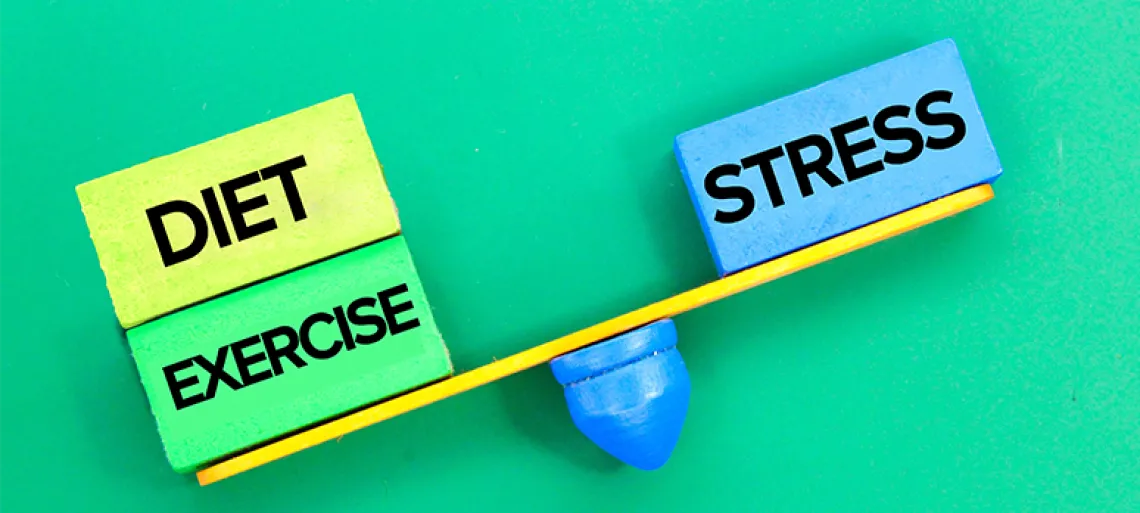How can I reduce stress through diet and exercise?

Stress takes a physical toll on the body. It causes fatigue, tension, nervousness, and loss of appetite. But you can control the effects of stress on your body through simple changes in your diet, exercise regimen, and general outlook on your daily activities.
Diet
Stress affects people's diets in different ways. Some people experience a loss in appetite. Others overindulge in unhealthy foods, alcohol, caffeine or tobacco as a defense against stress. Obviously, either of these reactions can be a detriment to your health, so take steps to avoid exaggerating the effects of stress with your diet:
- Avoid foods that are high in fat or contain large amounts of sugar or salt: An inappropriate diet can lead to high blood pressure and increased tension.
- Avoid cigarettes and other tobacco products: Smoking is one of the most preventable causes of illness and death, and its impact on the body can only worsen stress levels.
- Drink in moderation: While responsible alcohol use can have a relaxing effect, heavy drinking has serious health consequences, not to mention increased safety risks and social consequences from drunk driving accidents and alcohol-related violence.
- Eat sensible meals on a regular schedule, especially breakfast: Maintaining a well-balanced, nutritious daily diet increases your energy level and ability to deal with potentially stressful situations.
Exercise
Proper exercise not only helps you maintain your general physical well-being, it also provides a much-needed break from the stressors in your life. Use these tips to fight stress by introducing regular exercise into your routine:
- When you begin to feel stressed, take a break and go for a long walk.
- Schedule time each day for workouts, and place as much priority on them as you would your professional commitments. Your workout routine must become a set part of your day; otherwise it will be too tempting to avoid exercise.
- If possible, walk or ride a bike to work. If you must drive or take public transportation, use the stairs instead of the elevator once you get to work.
- Plan fun, physically challenging activities with your friends and family. This will help you set exercise goals and give you something to look forward to. Join a recreational sports league, or participate in charity walking, running or bicycling events.
Positive Outlook
Keep a positive outlook at all times. Studies show that people who are optimistic are more mentally and physically healthy than those who take a negative approach. When you see difficult situations as things that can be managed instead of insurmountable obstacles, you are more likely to solve the problems quickly and avoid stress.
Stress is a normal part of adult life. The most important thing you can do is acknowledge its place in your life and refuse to let it beat you.
Resources
Mental Health America
National Institute of Mental Health
National Institutes of Health
National Institute of Diabetes and Digestive and Kidney DiseasesNutrition.gov
©2023 ComPsych ® Corporation. All rights reserved. This information is for educational purposes only. It is always important to consult with the appropriate professional on financial, medical, legal, behavioral or other issues. As you read this information, it is your responsibility to make sure that the facts and ideas apply to your situation.

